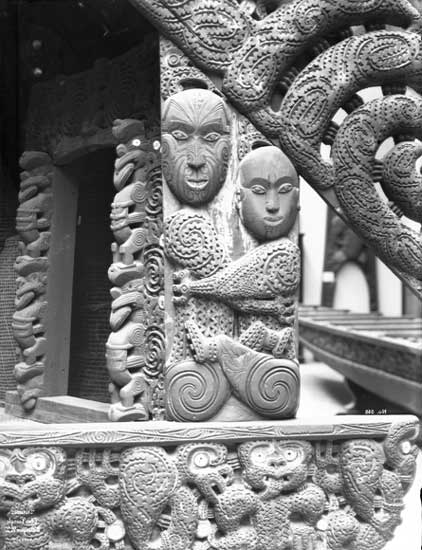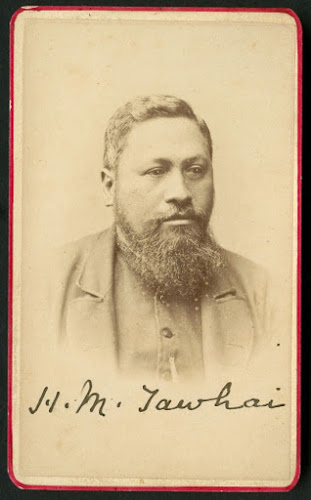Treaty Principles Bill
Submissions on the Principles of the Treaty of Waitangi Bill close on 7 January 2025 and can be made here. The Waitangi Tribunal has concluded that 'if this Bill were to be enacted, it would be the worst, most comprehensive breach of the Treaty/te Tiriti in modern times'.
I have posted my submission to the Justice Committee on the Bill below.
At the Hīkoi mō Te Tiriti, 19 November 2024
My name is Dr Vincent O’Malley. I am a Fellow of the Royal Society Te Apārangi (FRSNZ), a Fellow of the Royal Historical Society (FRHistS), a recipient of the Prime Minister’s Award for Literary Achievement in Non-Fiction, besides multiple other awards and prizes.
For more than thirty years now I have worked as a professional historian, researching and writing on Te Tiriti o Waitangi, the New Zealand Wars and related matters, including a number of acclaimed and best-selling books.
I draw on this background and expert knowledge of the topic matter, in making the following submission strongly opposing the Principles of the Treaty of Waitangi Bill.
As multiple other experts have pointed out it is a Bill which, while purporting to define the principles of the Treaty of Waitangi, in fact bears almost next to no relationship to that document. It is hardly necessary to labour the point since this has been examined at length by the Waitangi Tribunal and others. Tellingly, I don’t know of a single credible professional historian who has publicly endorsed the Bill as accurately reflecting the nature of the agreement entered into between the Crown and Māori in 1840.
The first principle contained in the Bill states that the executive government of New Zealand has full power to govern, and Parliament has full power, to make laws in the best interests of everyone in accordance with the rule of law and the maintenance of a free and democratic society.
It is obvious here that the drafters of the Bill are not only appallingly ignorant, deliberately or otherwise, of Aotearoa New Zealand history but also British history. In 1840 Great Britain was not a democratic society and the ruling classes were generally appalled at the prospect that it ever might be, resisting with all their might, including armed suppression, the Chartist movement that called for universal manhood suffrage. After the Reform Act of 1832 just one in five adult men were eligible to vote.
The British weren’t exporting democracy to New Zealand because they didn’t have it at home to export anywhere.
More seriously, Article 1 of Te Tiriti o Waitangi – the definitive te reo Māori Treaty document under international law – does not grant the Crown unbridled power to govern all. The ‘kawanatanga’ it accorded the Crown was instead limited. As the Waitangi Tribunal concluded in its 2014 Report He Whakaputanga me te Tiriti:
In February 1840 the rangatira who signed te Tiriti did not cede their sovereignty. That is, they did not cede their authority to make and enforce law over their people or their territories. Rather, they agreed to share power and authority with the Governor. They agreed to a relationship: one in which they and Hobson were to be equal – equal while having different roles and different spheres of influence. In essence, rangatira retained their authority over their hapu and territories, while Hobson was given authority to control Pākehā.
The second principle declares that the Crown recognises and will respect and protect the rights that hapū and iwi held under Te Tiriti at the time they signed it but that if such rights differed from the rights of everyone, this would apply only if such rights had been agreed in the settlement of an historical Treaty claim.
This is a wilful and egregious attack on Article 2 of Te Tiriti on multiple grounds. Firstly, it actively ignores the tino rangatiratanga promised the chiefs and their people in 1840. One party to a treaty cannot unilaterally alter its terms in such an unconscionable way. Secondly, nor can Māori rights be confined to those conferred through Treaty settlements. The kawanatanga secured by the Crown under Article 1 is constrained by the Article 2 promise to recognise and respect the rangatiratanga of Māori communities.
The third principle emphasises the equality of all before the law. Again, this bears no relationship to the actual contents of Article 3 of Te Tiriti, which guaranteed all the rights and privileges of British subjects to rangatira Māori and their people. As anyone with even a passing acquaintance with New Zealand history knows, references to ‘New Zealanders’ in 1840 referred solely to Māori.
Te Tiriti o Waitangi was signed between the Crown and various rangatira Māori on behalf of their people. It was agreed in a particular context – one in which 80,000 Māori outnumbered and dominated the 2000 non-Māori resident in these islands not just demographically, but also militarily, economically, and culturally.
That history has been examined and explored at length by multiple respected historians over recent decades. ACT’s Treaty Principles Bill shuns any engagement with this history, or the actual contents and context of Te Tiriti, in favour of a shallow, unconscionable political stunt that has already done incalculable damage to our nation.
Prime Minister Luxon erred grievously in agreeing to support the Treaty Principles Bill to first reading. But it is time to end the charade and reject this Bill emphatically and instead turn to trying to heal some of the many deep wounds it has caused.
Dr Vincent O’Malley FRHistS FRSNZ



Comments